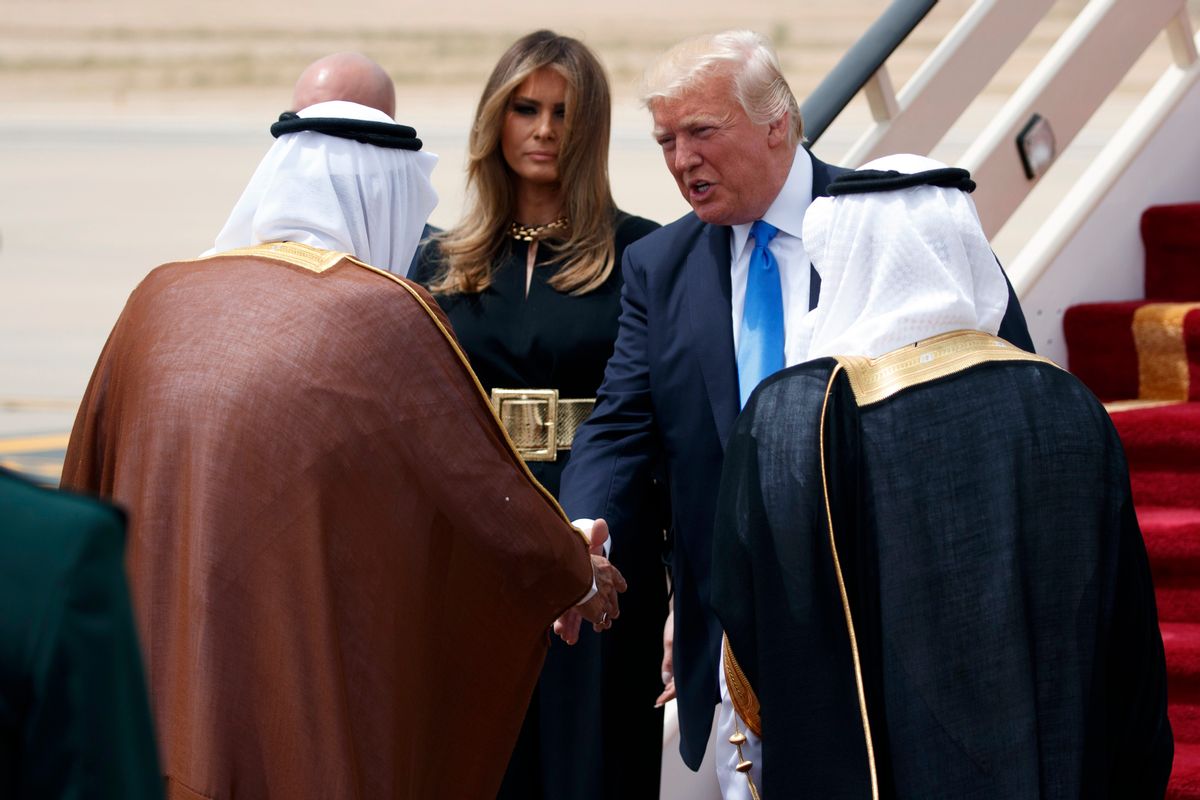On Sunday President Trump delivered a speech in Riyadh, the capital of Saudi Arabia, where he called on the Muslim world to strengthen the fight against extremism and "drive out" the terrorists, as he also promised not to lecture or impose America's belief systems on other countries. The speech portrayed a somber and reserved president, which is a stark contrast from the man who, on the campaign trail last year, said that he believed "Islam hates us."
"This is not a battle between different faiths, different sects, or different civilizations. This is a battle between barbaric criminals who seek to obliterate human life, and decent people of all religions who seek to protect it," Trump said in his speech. "If we do not stand in uniform condemnation of this killing, then we not only will be judged by our people, not only will be judged by history, but we will be judged by God."
Trump has previously criticized former President Barack Obama and others for not using the term "radical Islamic terrorism," but the president did not utter the term during his speech either and instead used phrases such as "Islamist extremism." Trump also clearly indicated that he would refrain from telling other nations how to act, so long as a partnership is formed, even though nations like Saudi Arabia have been criticized for egregious human rights violations.
"America is a sovereign nation and our first priority is always the safety and security of our citizens," Trump said. "We are not here to lecture — we are not here to tell other people how to live, what to do, who to be, or how to worship. Instead, we are here to offer partnership — based on shared interests and values — to pursue a better future for us all."
The speech also condemned Iran and its leaders for "spreading destruction and chaos across the region," and said they have "fueled the fires" of terrorism even though, as former Salon writer Ben Norton pointed out, that Saudi Arabia has globally exported and profusely funded Wahhabism, the "ultra-puritanical" form of Islam that is largely embraced by terrorist organizations like ISIS and al-Qaeda. Trump suggested that nations should forge a partnership to isolate Iran until its leaders are "willing to be a partner for peace."
"Pray for the day when the Iranian people have the just and righteous government they so richly deserve," Trump said.
The president also called on Saudi Arabia, and others within the region to take responsibility and to not rely on the U.S. to be able to rid the threat of terror for them. "The nations of the Middle East cannot wait for American power to crush this enemy for them. The nations of the Middle East will have to decide what kind of future they want for themselves, for their countries, and for their children," Trump said. "Muslim-majority countries must take the lead in combating radicalization."



Shares